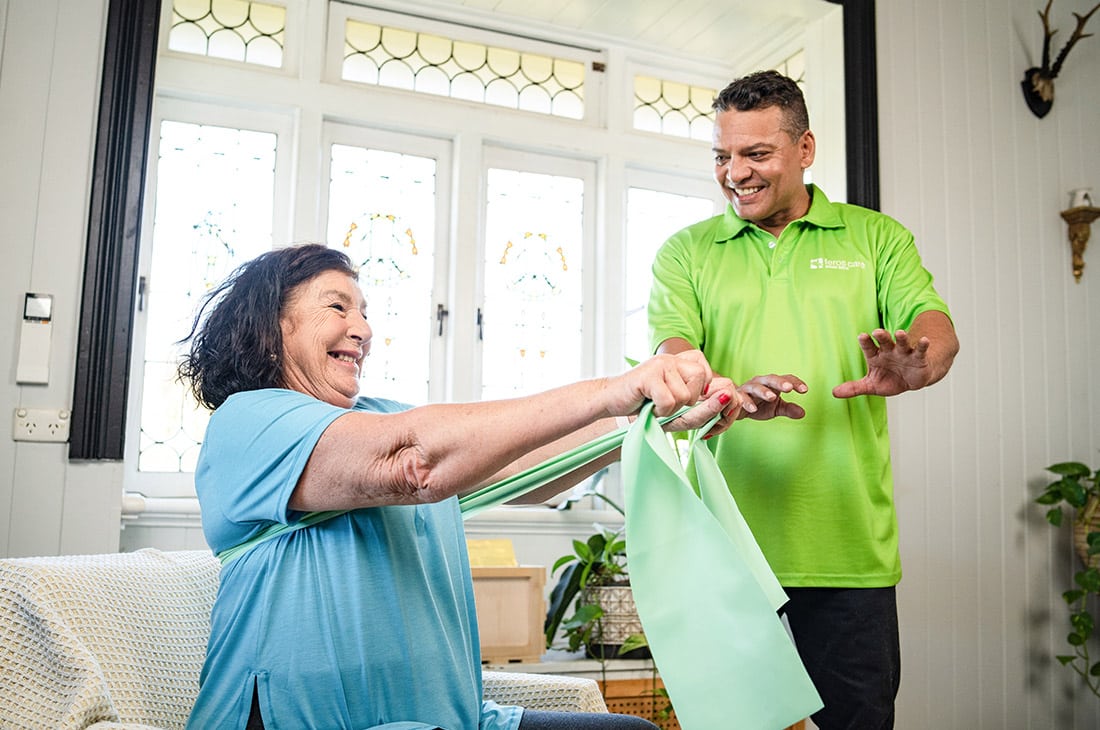In Home Caregivers and NDIS Plan Manager Roles: Navigating Home Care Providers in Australia
In Home Caregivers and NDIS Plan Manager Roles: Navigating Home Care Providers in Australia
Blog Article
The Growing Demand for In Home Treatment Givers: Reasons Families Select Professional Treatment Over Standard Facilities
The enhancing preference for at home caregivers over standard facilities is a significant fad improving the landscape of senior care. Family members are attracted to the benefits of customized care that aligns with individual requirements and preferences, allowing seniors to maintain a sense of freedom in a familiar setting. This change also highlights the psychological and economic considerations that affect decision-making. As we discover the myriad variables adding to this expanding need, the effects for both caretakers and families end up being significantly evident. What does this mean for the future of caregiving?
Personalization of Treatment
Customization of care in home caregiving is necessary for fulfilling the one-of-a-kind demands of each person (ndis plan manager). This approach ensures that care strategies are customized to the specific needs of the person, considering their clinical background, personal choices, and way of living. By concentrating on the person's one-of-a-kind scenarios, caregivers can foster a feeling of self-respect and autonomy, which is often doing not have in even more institutionalized settings

Home caregiving enables for continual observation and adjustment of care strategies, making certain that modifications in health condition or personal choices are quickly addressed. Inevitably, personalized care in home settings dramatically adds to the overall wellness of clients, making it a crucial part of modern-day caregiving techniques.
Comfort of Home Environment
The comfort of a home environment plays a crucial role in the effectiveness of home caregiving. Several people, especially elders, experience heightened tension and anxiety when positioned in unfamiliar setups such as standard care centers. Home caregiving supplies a familiar environment, full of personal belongings, treasured memories, and the complacency that originates from being in one's own area. This experience can dramatically boost emotional wellness, which is important for healing and overall wellness.
In addition, the home setting permits a customized approach to caregiving, suiting private choices and regimens. Families can develop an atmosphere that shows their liked one's way of living, making certain that treatment is delivered in a manner that really feels comfy and all-natural. This customized setting motivates better communication and interaction between customers and caregivers, cultivating depend on and connection necessary for reliable care.
Furthermore, the convenience of home can facilitate social links, as relative and pals can see a lot more easily, offering vital psychological assistance. ndis support coordinator. On the whole, the home environment not only helps to preserve dignity and freedom but also adds to a better of care, making it a preferred choice for family members seeking professional caregiving remedies

Improved Freedom for Senior Citizens
Home caregiving not just supplies comfort yet additionally promotes boosted self-reliance for seniors. Unlike typical centers, at home care enables seniors to maintain their day-to-day regimens and participate in acquainted activities within their very own atmosphere. This autonomy is crucial for their emotional health and general quality of life.

Moreover, at home caretakers can adjust their services to provide especially to the unique needs of each senior, advertising a better sense of control. This flexibility ensures that elders can enjoy their leisure activities, socialize with household and good friends, and stay energetic in their areas, even more enhancing their sense of independence.
Inevitably, in-home caregiving not just deals with the physical requirements of senior citizens however likewise empowers them more to lead fulfilling lives, making it an increasingly popular option for families looking for the most effective treatment options for their enjoyed ones.
Cost-Effectiveness of In-Home Treatment
At home care uses an economical alternative to typical nursing centers, allowing families to provide quality assistance for their enjoyed ones without sustaining expensive expenses. The costs related to assisted living facility can be frustrating, usually going beyond $100,000 annually, which can drain funds swiftly. On the other hand, in-home care solutions typically charge on a per-visit or hourly basis, enabling family members to customize care plans according to their budget plan and particular demands.
Additionally, at home treatment removes additional expenses related to facility living, such as board, room and transport, and numerous management fees. Family members can select to engage caretakers only when essential, potentially decreasing total expenditures. A significant benefit of in-home care is the capability to maintain personal regimens, which can add to much better psychological health and minimize the need for expensive clinical treatments arising from abrupt lifestyle changes.
Insurance coverage, including long-term care insurance coverage, typically expands to in-home care services, even more boosting economic ease of access (in home caregivers). In general, the cost-effectiveness of at home treatment not just reduces the economic worry on family members but additionally advertises an extra customized method to care that aligns with individual choices and requirements
Structure Stronger Household Connections
Providing care in an acquainted environment promotes much deeper my link household links, enabling liked ones to proactively take part in the caregiving process. In-home care creates opportunities for households to engage meaningfully with their handicapped or elderly loved ones, promoting emotional bonds that can be hard to achieve in institutional settings. The presence of expert caretakers allows family members to concentrate on their relational functions instead of being burdened by the physical needs of care.
Furthermore, at home treatment enables families to keep their cherished regimens, which can decrease feelings of anxiousness and disorientation often linked with relocation to care centers. Shared dishes, acquainted environments, and the comfort of home offer a feeling of security that boosts wellness and fosters open interaction.
Households can team up with caregivers to establish customized care plans that reflect the private choices and requirements of their liked ones. This collective strategy not only equips the elderly yet likewise enhances the household system, as members share obligations and sustain each other through challenging times. Ultimately, in-home care cultivates a nurturing setting where relationships can flourish, boosting the lifestyle for both caregivers and recipients.
Conclusion
The boosting preference for at home caretakers highlights a significant shift in exactly how families approach elderly treatment. As these elements align, at home care emerges as a compelling choice to typical facilities, inevitably promoting the wellness and quality of life for senior citizens.
Family members are drawn to the advantages of individualized care that lines up with specific needs and choices, permitting senior citizens to keep a sense of freedom in a familiar setting.In-home treatment supplies an affordable option to typical nursing facilities, allowing households to give quality support for their liked ones without incurring inflated expenditures. In comparison, in-home care services usually bill on a per-visit or hourly basis, allowing family members to tailor care plans according to their budget plan and details demands.
In-home care creates opportunities for families to engage meaningfully with their elderly or disabled relatives, promoting emotional bonds that can be hard to attain in institutional settings.The enhancing choice for at home caretakers highlights a substantial change in just my review here how families approach senior treatment.
Report this page